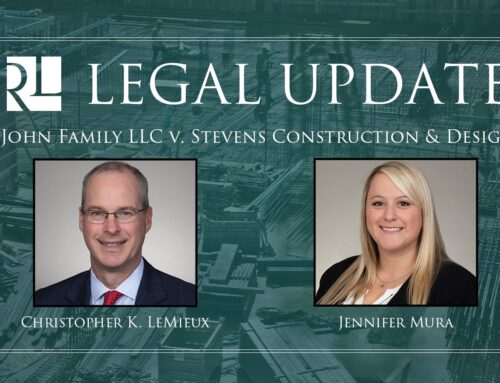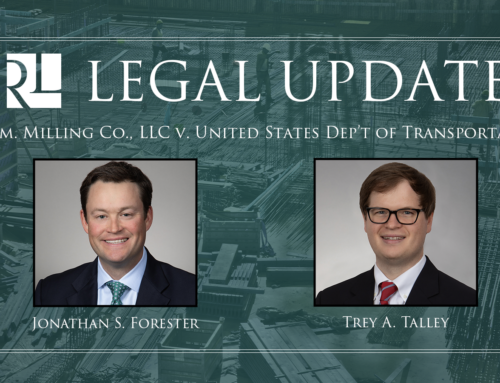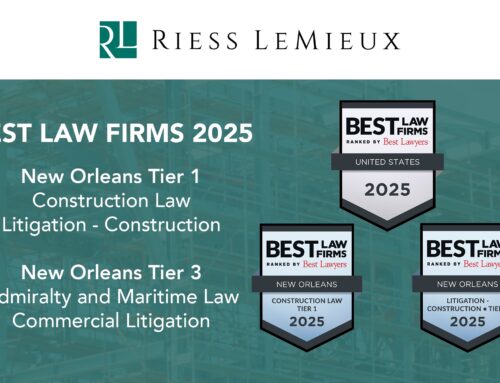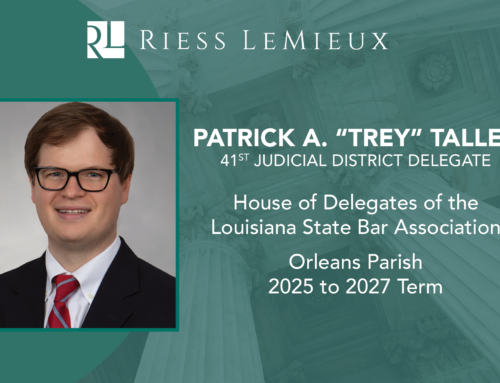Several important laws affecting the construction industry—and businesses in general—were passed by the Louisiana Legislature during the 2020 Regular and Extraordinary Sessions and signed into law by the Governor, including partial tort reform, business and individual protections related to COVID-19, and new laws affecting the construction industry in particular.
1. Partial Tort Reform – Amends La. Code Civ. Proc. Articles 1732, 1733, 4873(1), La. Code Evid. Article 411, enacts La. R.S. § 9:2800.27, and repeals La. R.S. § 32:295.1(E).
 During the 2020 Regular Session, the Legislature passed comprehensive tort reform via Senate Bills 418 and 395. The bills were vetoed by the Governor, requiring the Legislature to revisit tort reform during the Extraordinary Session. Several aspects of the initial tort-reform bills did not survive, such as the proposed two-year prescriptive period for filing suit, removal of a direct right of action against insurers, and measures to stop deceptive advertising about monetary results by personal-injury lawyers.
During the 2020 Regular Session, the Legislature passed comprehensive tort reform via Senate Bills 418 and 395. The bills were vetoed by the Governor, requiring the Legislature to revisit tort reform during the Extraordinary Session. Several aspects of the initial tort-reform bills did not survive, such as the proposed two-year prescriptive period for filing suit, removal of a direct right of action against insurers, and measures to stop deceptive advertising about monetary results by personal-injury lawyers.
Nevertheless, passage of House Bill 57—known as the Civil Justice Reform Act of 2020 (CJRA) —is the most significant tort-reform legislation in decades. The goal of the legislation is to reduce car-insurance premiums by cutting down on personal-injury lawsuits. Among the changes are the lowering of the jury threshold amount from $50,000 to $10,000, allowance of seatbelt evidence at trial for comparative-fault consideration, and codification of a modified “collateral source rule.” Lawmakers believe that the CJRA will result in more cases being settled before heading to trial. The new tort-reform laws are effective January 1, 2021.
Jury Threshold
An amendment to Article 1732 of the Louisiana Code of Civil Procedure allows for a plaintiff to request a jury for cases seeking at least $10,000 in damages. Details of the amended law include:
- A plaintiff can stipulate the damages claimed are less than $10,000 at least 60 days prior to trial to prevent the trial from proceeding before a jury.
- If such a stipulation occurs less than 60 days before trial, a defendant is still afforded the right to a jury trial if the defendant complied with the procedural requirements of requesting a jury trial timely.
- For non-tort cases, if suit is filed in city or parish court, a plaintiff can stipulate the claim is less than the jurisdictional limit of that court to avoid a jury trial.
Jury Bond
The CJRA amends Article 1733 of the Louisiana Code of Civil Procedure governing bonds for jury costs. Under the amended law, if the value of a plaintiff’s claim is between $10,000 and $50,000, the plaintiff is required to post a $5,000 bond within 60 days of a timely demand for jury. A failure to post the jury bond acts as a waiver of the right to a jury trial. The court may also require an additional supplemental bond per Articles 1734 or 1734.1. These changes are intended to ensure that only serious plaintiffs pursue jury trials by requiring them to post the $5,000 bond.
Transfer to District Court
Another change enacted by the CJRA is an amendment to Article 4873 of the Louisiana Code of Civil Procedure, which states that a plaintiff can transfer a case from parish or city court to a district court for a jury trial, but only within 10 days of the defendant’s filing of an answer. The failure to file a motion timely results in waiver of the right to a jury.
Evidence of Liability Insurance
The CJRA makes significant changes to Article 411 of the Louisiana Code of Evidence regarding admissibility of evidence of liability insurance. The amended law allows for juries to be told that a plaintiff has insurance coverage only in limited circumstances. Juries can be informed about the existence of insurance coverage only when:
- there is a factual dispute regarding coverage to be decided by the jury;
- existence of insurance is admissible to attack the credibility of a witness; or
- the cause of action is asserted against only the liability insurer as permitted by the direct-action statute or alleges the insurer acted in bad faith.
In all instances, the identity of an insurer may not be disclosed unless it would be admissible to attack the credibility of the witness. Further, in direct-action cases or cases alleging bad faith, the jury may only be told at the opening and closing of cases that there is insurance coverage for the damage claimed by a plaintiff.
Statistically, juries are more likely to award higher damage awards when they believe that insurance companies will bear the costs. The change to Article 411 is expected to discourage juries from awarding inflated damages against insurers by preventing juries from hearing evidence regarding the existence of coverage.
Modified Collateral-Source Rule
The collateral-source rule prohibits a defendant from presenting evidence that a plaintiff has received money for an injury from a “collateral source,” such as an insurance company. The Legislature has enacted La. R.S. §9:2800.27, which codifies a modified collateral-source rule that limits a plaintiff’s recovery to the amounts actually paid by a health insurer, not the amounts billed. This change precludes a plaintiff from recovering the full cost billed by a medical provider that is often more than what is actually paid by an insurer. In consideration of the cost to procure health insurance, a plaintiff may be able to recover 40% of the difference between amounts billed and amounts paid. Details of the amended law include:
- If the treatment was provided in-network, a plaintiff’s recovery is limited to: (1) the amount the insurer was billed for the medical treatment; (2) any co-payments, co-insurance, or deductibles; and (3) 40% of the difference between the medical provider’s bill and costs paid by the insurer. The court can reduce the 40% difference awarded if it would be unreasonable to allow such a recovery.
- If the treatment was provided out-of-network, a plaintiff can only recover the costs billed to an insurer, plus co-payments.
- For any other medical expenses, including unpaid medical expenses, a plaintiff can only collect what has been paid by an insurer and what is still owed to a medical provider.
- The jury will not be presented with evidence regarding recoverable medical expenses until after it reaches a verdict. The jury will only hear the amounts billed by a medical provider for treatment. Whether an insurer has paid or agreed to be paid any medical expenses will not be disclosed to a jury. But if a case is tried by a judge instead of a jury, the court may consider such evidence.
- Workers’ compensation medical expenses will be paid according to the medical payment fee schedule.
- The collateral-source changes do not apply to the Governmental Liability Act or Medical Malpractice Act.
Seatbelt Evidence Allowed
The CJRA repeals the “seatbelt gag rule” by removing the prohibition against evidence showing that a plaintiff was not wearing a seatbelt in an auto collision. This will allow juries to consider seatbelt evidence for comparative-fault purposes. The change is intended to lower damage awards when a plaintiff was injured in an accident while not wearing a seatbelt.
2. COVID-19 Legislation – Enacts La. R.S. § 13:3881(A)(10) and § 20:34, La. R.S. §§ 9:5828 through 5830, La. R.S. § 9:2800.25, and § 29:773, and amends La. R.S. § 29:735(A)(1).
 The Legislature enacted several new laws during the Regular and Extraordinary Sessions to protect individuals and businesses from the impacts of COVID-19 and government lockdowns.
The Legislature enacted several new laws during the Regular and Extraordinary Sessions to protect individuals and businesses from the impacts of COVID-19 and government lockdowns.
Relief Funds Protected from Seizure by Creditors
The passage of Senate Bill 450 provides individuals and businesses who received COVID-19 relief payments, grants, or loans from having those funds seized by a creditor. The bill enacts La. R.S. § 13:3881(A)(10), which makes federal COVID-19 relief funds off-limits for creditors, except for garnishment of spousal- or child-support payments. The bills also enacts La. R.S. § 20:34, which states that in the event of an “extraordinary emergency event” —such as a federal- or state-declared natural disaster or public-health emergency affecting Louisiana—any Louisiana person or entity who receives government payments, grants, or loans: (1) must spend the funds for their intended purpose; (2) must keep the funds in a unique account to prevent their seizure, except for spousal or child support; (3) may not assign the funds or grant them as security for a pre-existing debt before the emergency declaration. The receiver of funds must follow the delineated protocols to prevent seizure of the funds.
The receiver of funds is granted several remedies to prevent seizure, such as temporary restraining orders, injunctions, and protective orders. The statute does not supersede any laws, regulations, rules, or governmental guidance or interpretations governing the payments, grants, or loans that may conflict with the statute. The new laws are effective as of June 4, 2020.
Extension and Suspension of Peremption, Prescription, and Legal Deadlines
The Legislature recognized that the effects of COVID-19 impact the operation of businesses and the courts. To protect parties in current or future legal disputes, the Legislature extended or suspended most prescriptive periods, all peremptive periods, and any legal deadlines that were set to expire between March 17 and July 5, 2020.
House Bill 805 was passed to prevent injustice, inequity, and undue hardship resulting from the closure of courts and public offices during the COVID-19 health emergency. The act sets forth the following changes to prescription/peremption periods and legal deadlines:
- La. R.S. § 9:5828 ratifies Proclamation Number JPE 2020-30—the Governor’s order suspending all prescriptive and peremptive periods beginning March 17, 2020.
- La. R.S. § 9:5829 suspends or extends all prescriptive and peremptive periods that would have otherwise expired between March 17 and July 5, 2020, allowing parties to file pleadings on July 6, 2020 to protect their rights. A few prescriptive periods pertaining to mineral interests are exempted from the protections provided by the act.
- La. R.S. § 9:5830 enables parties to file motions seeking extensions of legal deadlines—if not already extended by statutory or emergency proclamation—if the party can prove the party or its attorney were adversely affected by the COVID-19 health emergency and, but for the emergency, the party would have been able to meet the applicable deadline. Courts can grant such motions for good cause but cannot delay deadlines past September 1, 2020.
The new laws are effective as of June 9, 2020.
Limitation of Liability from Suits Arising from Exposure to COVID-19
The passage of House Bill 826 protects businesses and government bodies from suits alleging exposure to COVID-19. La. R.S. § 9:2800.25 provides immunity from suits for exposure to COVID-19, except in instances where the alleged exposer failed to substantially comply with federal, state, or local governmental regulations or guidelines and the exposure resulted from the exposer’s gross negligence or wanton or reckless conduct. In situations where multiple, conflicting regulations or guidelines exist, immunity is provided if the alleged exposer complied with at least one of the available regulations or guidelines.
La. R.S. § 9:2800.25 also classifies COVID-19 exposure as a work-related injury or illness compensable exclusively through workers’ compensation laws, unless the exposure was caused by an intentional act by the employer. This is the same exception that applies to all workers’ compensation claims.
La. R.S. § 29:773 limits liability of individuals or businesses dispensing or administering Personal Protective Equipment (PPE), unless the person failed to substantially comply with the applicable procedures established by federal, state, or local agencies regarding the use of such PPE or the person was grossly negligent or exhibited wanton or reckless misconduct.
Both statutes are effective retroactive to March 11, 2020.
3. Public Entity Withholding of Liquidated Damages – Enacts La. R.S. §§ 38:2211(A)(14) and 38:2248(C).
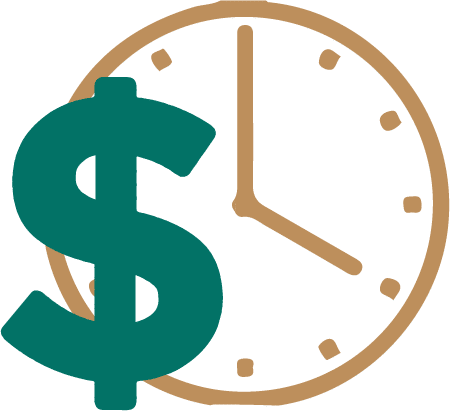 The passage of House Bill 758 allows public entities to withhold liquidated damages from a contractor on flood-protection and integrated-coastal protection projects where allowed by contract. The original proposed bill would have extended this right to public entities on all publicly bid projects. The initial version of the bill would have resolved a split among the Louisiana appellate courts regarding whether a public entity has the right to withhold liquidated damages that are disputed by a contractor. With the passage of the limited version of the bill, the split among the appellate courts remains with respect to most public jobs. Ultimately, whether a public entity can withhold liquidated damages may depend on the location of the project. For further analysis of this development in the law, please see our post here. The new law is effective as of August 1, 2020.
The passage of House Bill 758 allows public entities to withhold liquidated damages from a contractor on flood-protection and integrated-coastal protection projects where allowed by contract. The original proposed bill would have extended this right to public entities on all publicly bid projects. The initial version of the bill would have resolved a split among the Louisiana appellate courts regarding whether a public entity has the right to withhold liquidated damages that are disputed by a contractor. With the passage of the limited version of the bill, the split among the appellate courts remains with respect to most public jobs. Ultimately, whether a public entity can withhold liquidated damages may depend on the location of the project. For further analysis of this development in the law, please see our post here. The new law is effective as of August 1, 2020.
4. Increase of Contract Limit for Public Bidding – Amends La. R.S. § 38:2212(C)(1).
 Senate Bill 118 increased the contract limit required for public bidding of projects to more than $250,000. Previously, the statute required that all public work exceeding the contract limit of $150,000, including labor and materials, to be advertised and let by contract to the lowest responsible and responsive bidder. In addition to increasing the contract limit to $250,000, the statute also allows for the contract limit to be adjusted by the Office of Facility Planning and Control of the Division of Administration on an annual basis beginning February 1, 2025. The adjustment may not exceed the annual percentage increase of the Consumer Price Index for the previous year. The amended law is effective as of July 1, 2020.
Senate Bill 118 increased the contract limit required for public bidding of projects to more than $250,000. Previously, the statute required that all public work exceeding the contract limit of $150,000, including labor and materials, to be advertised and let by contract to the lowest responsible and responsive bidder. In addition to increasing the contract limit to $250,000, the statute also allows for the contract limit to be adjusted by the Office of Facility Planning and Control of the Division of Administration on an annual basis beginning February 1, 2025. The adjustment may not exceed the annual percentage increase of the Consumer Price Index for the previous year. The amended law is effective as of July 1, 2020.
5. Appropriated Funds Withheld by Legislative Auditor – Amends La. R.S. § 39:72.1(A).
 The passage of Senate Bill 157 allows for payments to be made to a contractor, subcontractors, suppliers, and others due payment by a public entity when the public contract was entered into prior to the public entity becoming non-compliant with the Legislative Auditor statute. In this instance, the public entity may be granted an extension of time under La. R.S. § 24:513 in order for the public entity to receive appropriated or awarded funds to make payments owed under a public contract. However, this is limited “solely to contracts that will inure to the benefit of public health, welfare, or safety.” The public entity must abide by any conditions imposed by the Legislative Auditor to monitor the proper payment of funds due to contractors, subcontractors, suppliers, and others. The amended statute is effective as of July 1, 2020.
The passage of Senate Bill 157 allows for payments to be made to a contractor, subcontractors, suppliers, and others due payment by a public entity when the public contract was entered into prior to the public entity becoming non-compliant with the Legislative Auditor statute. In this instance, the public entity may be granted an extension of time under La. R.S. § 24:513 in order for the public entity to receive appropriated or awarded funds to make payments owed under a public contract. However, this is limited “solely to contracts that will inure to the benefit of public health, welfare, or safety.” The public entity must abide by any conditions imposed by the Legislative Auditor to monitor the proper payment of funds due to contractors, subcontractors, suppliers, and others. The amended statute is effective as of July 1, 2020.
6. Removal of Venue Restrictions for LSLBC Enforcement Actions – Amends La. R.S. § 37:2162(J).
 Prior to the amendment of La. R.S. § 37:2162(J), all suits brought against unlicensed contractors by the Louisiana State Licensing Board for Contractors (LSLBC) for engaging in business without a license were required to be brought in East Baton Rouge Parish. The passage of House Bill 220 removes this restriction and allows the LSLBC to pursue civil actions against unlicensed contractors in any district court with competent jurisdiction. The amended statute is effective as of August 1, 2020.
Prior to the amendment of La. R.S. § 37:2162(J), all suits brought against unlicensed contractors by the Louisiana State Licensing Board for Contractors (LSLBC) for engaging in business without a license were required to be brought in East Baton Rouge Parish. The passage of House Bill 220 removes this restriction and allows the LSLBC to pursue civil actions against unlicensed contractors in any district court with competent jurisdiction. The amended statute is effective as of August 1, 2020.
7. Sewerage & Water Board Changes – Amends La. R.S. §§ 33:4071, 33:4084-85, and 33:4090.
 Senate Bill 390 enacted several changes to the laws governing the Sewerage and Water Board (S&WB). The first change revises the requirements governing the makeup of the S&WB contained in La. R.S. § 33:4071. The amendment removes the requirement that one of the seven citizens appointed to the S&WB by the Mayor must be a retired civil engineer.
Senate Bill 390 enacted several changes to the laws governing the Sewerage and Water Board (S&WB). The first change revises the requirements governing the makeup of the S&WB contained in La. R.S. § 33:4071. The amendment removes the requirement that one of the seven citizens appointed to the S&WB by the Mayor must be a retired civil engineer.
The rules governing the S&WB’s letting of contracts have also been modified. La. R.S. § 33:4084 was amended to allow the S&WB to make purchases between $10,000 and $30,000 by following the regulations provided in La. R.S. § 38:2212.1. For purchases between $10,000 and $30,000, the S&WB must obtain at least three quotes before transacting a purchase and must incorporate its reasons for any accepted offers into the purchase file. Additionally, any purchases over the $30,000 threshold are governed solely by La. R.S. § 38:2212.1, removing additional language mandating special notice requirements which were applicable only to the S&WB.
La. R.S. § 33:4084 was also amended to simplify the letting of S&WB’s public-works projects by making such contracts subject to the restrictions of La. R.S. § 38:2212. Accordingly, all public works contracts that exceed $250,000 must follow the Louisiana Public Bid Law. The amendment also provides that the S&WB can request additional documentation pursuant to La. R.S. § 38:2212(B)(3)(a), an exception to the general rule applicable to other state and local entities. The last amendment restricts the S&WB’s right to reject all bids and waive informalities.
The final change from the amended law regards the apportionment of costs for connecting to sewer mains. Under the revised law, any individual lot owner will bear the costs, inclusive of meter boxes, for initial connections from the main to the property line. Additional costs from the property line to on-site facilities are also borne by the property owner. Property owners can hire plumbers to install connections of subsequent work, but the plumber’s work will be subject to the S&WB’s regulation, inspection, and control. The change means that maintenance work that disrupts the flow to properties—such as proactive repairs, moving or replacing meter boxes, or replacing a lead water line—will be paid for by the S&WB. Finally, the S&WB will bear the costs for lots developed in compliance with the voluntary-inclusion zoning provisions of the comprehensive zoning ordinance, as certified by the director of the Department of Safety and Permits.
The amended statutes are effective as of August 1, 2020.
